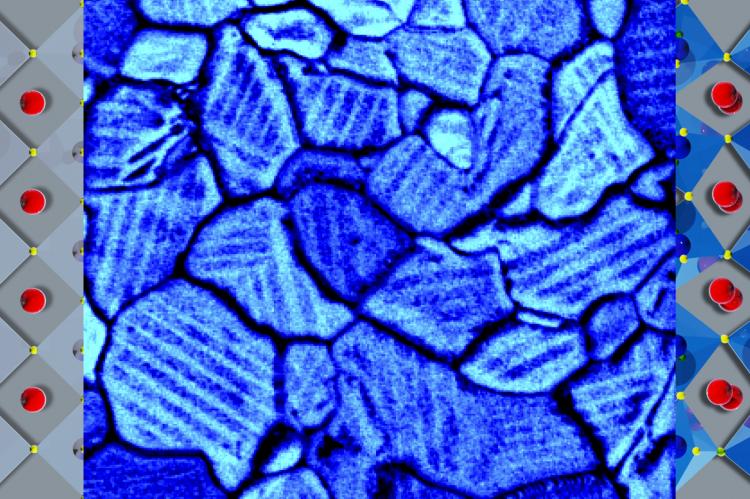From pv magazine Global
A research group from the U.S. Department of Energy’s Oak Ridge National Laboratory has conducted a study, which shows that hybrid organic–inorganic perovskite is ferroelastic, and not ferroelectric as commonly accepted.
This discovery may have positive implications for the development of solar cells based on hybrid organic–inorganic perovskite, as its newly discovered ferroelastic properties enable the material to form domains of polarized strain to minimize elastic energy. Previous research indicated that the material is ferroelectric, which means it is able to form domains of polarized electric charge to minimize electric energy.
“We used multimodal chemical imaging—scanning probe microscopy combined with mass spectrometry and optical spectroscopy—to show that this material is ferroelastic and how the ferroelasticity drives chemical segregation,” said researcher Olga Ovchinnikova.
The study has revealed, in particular, that the transport of electric charge can be positively influenced by a change in the local chemistry resulting from the fact that ionized molecules migrate and segregate within regions of the film. “We found that people were misguided by the mechanical signal in standard electromechanical measurements, resulting in the misinterpretation of ferroelectricity,” said fellow scientist Yongtao Liu.
For their experiment, based on diverse microscopy and spectroscopy measurements, the scientists created a PV device by combining a perovskite with an indium tin oxide–coated glass substrate. They observed that this device, which both needs and produces strain, formed tiny ferroelastic domains to relieve the strain.
“Our work shows the effect believed due to ferroelectric polarization can be explained by chemical segregation,” the research team said.
By Emiliano Bellini
This content is protected by copyright and may not be reused. If you want to cooperate with us and would like to reuse some of our content, please contact: editors@pv-magazine.com.








By submitting this form you agree to pv magazine using your data for the purposes of publishing your comment.
Your personal data will only be disclosed or otherwise transmitted to third parties for the purposes of spam filtering or if this is necessary for technical maintenance of the website. Any other transfer to third parties will not take place unless this is justified on the basis of applicable data protection regulations or if pv magazine is legally obliged to do so.
You may revoke this consent at any time with effect for the future, in which case your personal data will be deleted immediately. Otherwise, your data will be deleted if pv magazine has processed your request or the purpose of data storage is fulfilled.
Further information on data privacy can be found in our Data Protection Policy.